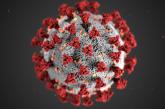Article

COVID-19 therapy: What works? What doesn’t? And what’s on the horizon?
- Author:
- Ambar Kulshreshtha, MD, PhD
- Summer Sizemore, PharmD
- Henry C. Barry, MD, MS
Here is the latest evidence on the efficacy and safety of treatments that are FDA approved or authorized, in clinical trials, or not recommended...
